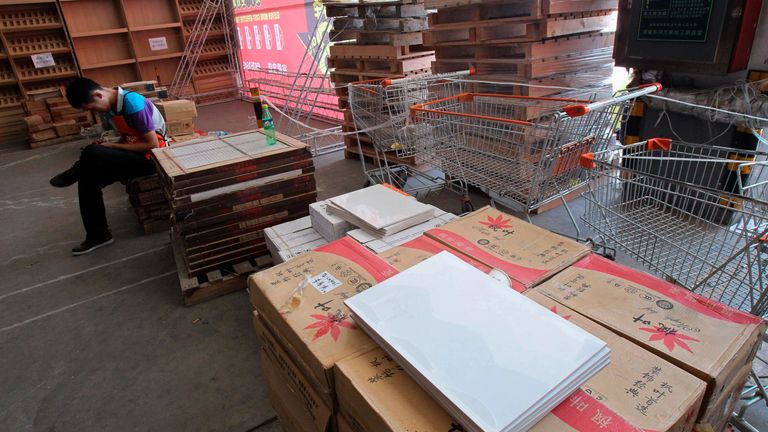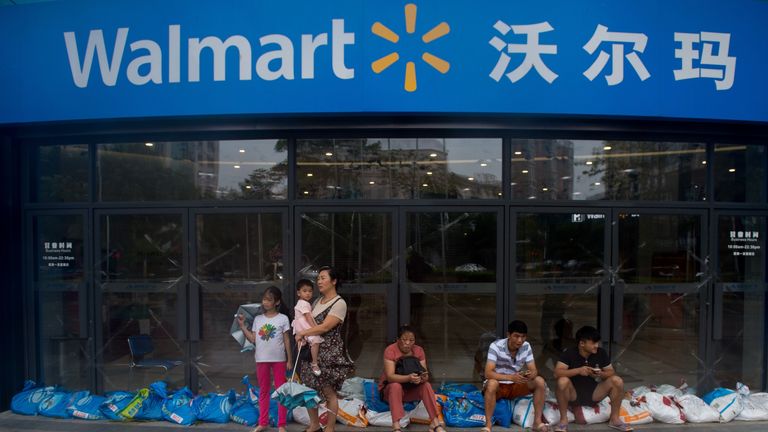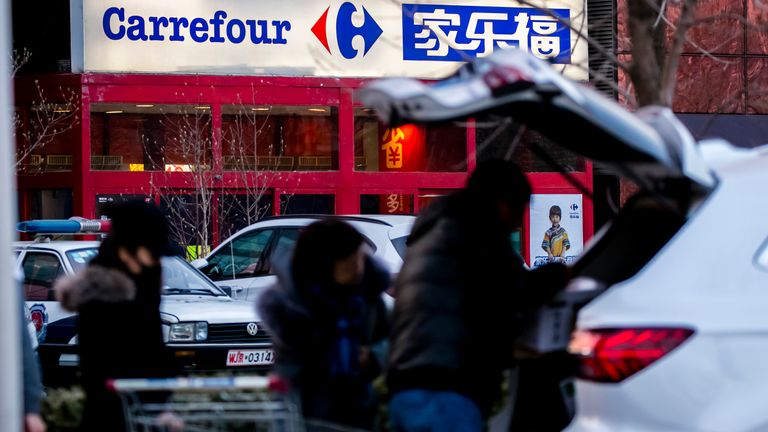The boundaries between online and offline retailing are becoming increasingly blurred.
The best-known example of this in the west is the way Amazon has moved into physical retail with both the launch of its Amazon Go outlets and its acquisition of the Whole Foods grocery business.
Yet it is in China that the phenomenon appears to be most strongly under way.
It took another step today when Alibaba, the colossus often described as a Chinese version of eBay and Amazon combined, stepped up its investment in bricks-and-mortar retailing.
The company is paying HK$28bn (£2.8bn) to raise its stake in Sun Art Retail Group, a hypermarket operator, from 21% to 72%. It will now seek to buy out the remaining shareholders in Sun Art, whose Hong Kong-listed shares shot up by 30% initially, before closing up 19%.
Sun Art, which as at the end of June operated 481 hypermarkets and three mid-sized supermarkets, is China’s second-largest grocery retailer and accounts for around 14% of the hypermarket sector on its own.
The deal is consistent with the “new retail strategy” of Daniel Zhang, Alibaba’s chairman and chief executive, of combining both e-commerce with physical retail.
He said on Monday: “As the COVID-19 pandemic is accelerating the digitalisation of consumer lifestyle and enterprise operations, this commitment to Sun Art serves to strengthen our new retail vision and serve more consumers with a fully integrated experience.”
Sun Art dates back to the establishment, 20 years ago, of a joint venture between RT-Mart, owned by the Taiwanese conglomerate Ruentex, and Auchan, the French grocery giant, which had respectively opened stores in China in 1998 and 1999. The business floated on the Hong Kong Stock Exchange in 2011 but Auchan had retained a significant stake in the business until now.
Alibaba first bought a stake in the business in 2017 and has since used its strengths in logistics and supply chain management to bolster Sun Art’s business. Since then, all of Sun Art’s stores were brought onto Alibaba’s platforms, allowing the latter’s couriers to deliver the former’s products on the same day as an order is placed – even sometimes only an hour later. As a result, Sun Art has become the only grocery retailer in China to have turned a profit from its online operations, with the service coming into its own during the lockdown period. Online food sales in China during the first eight months of the year were up 35% on the same period last year.
Alibaba is not the only big Chinese online player to have moved meaningfully into physical retailing. Its great rival Tencent, owner of China’s most popular social media app WeChat, has invested in the local grocery operator Yonghui Stores – while JD.com, another Chinese e-commerce giant, has been investing in local supermarket chains and has also established a strategic partnership in the country with Walmart.
Such investments are being seen in China not only as expansionary but also partly defensive. Meituan, the food delivery company which in May this year became the third Chinese company to achieve a stock market valuation of $100bn after Alibaba and Tencent, is seen as a powerful rival to both – particularly because it is regarded as holding greater appeal to a younger demographic.
But the over-riding trend is that all retailers appear to be coming around to the view that, to succeed, you must be positioned in both online and offline.
The logic behind such moves was explained by Zhang Jindong, chairman of Suning.com – an e-commerce business that emerged from an established retail business and whose shareholders include Alibaba – in 2018: “We have one customer base, we share the stock, online and offline, the supply chain, the customer management system. We are in one world, serving one group of customers. Pure online e-commerce is dead.”
The takeover of Sun Art by Alibaba has a second interesting dimension: it marks a continuation of the slow retreat from China’s retail sector by Western players.
China, bluntly, has been a graveyard for Western retailers. The early years of this century saw a host of European and American retailers announce ambitious openings in China as they sought to cash in on the country’s growing wealth and living standards. From the UK, they included Tesco, Marks & Spencer and B&Q. From France came Auchan and Carrefour and, from the United States, Best Buy, Home Depot and Walmart.
One by one, the foreign retailers have withdrawn, with M&S closing its last Chinese store in March 2017 and Tesco completing its exit from the country in February this year. Kingfisher, the parent of B&Q, sold its controlling stake in the do-it-yourself group’s Chinese arm as long ago as 2014. Its big US rival, Home Depot, had pulled out two years earlier. Even foreign operators nearer to China have enjoyed little success. Takashimaya, the Japanese department store operator which has expanded successfully into Vietnam, Singapore and Thailand, closed its flagship store in Shanghai in August last year and called a halt to its Chinese ambitions.
In the hypermarket sector, meanwhile, Carrefour – the world’s second-largest physical retailer after Walmart – sold most of its Chinese business in June last year to Suning.com. Metro, the German cash and carry retailer, sold a majority holding in its Chinese business to the local player WuMart a year ago. Dia, the Spanish supermarket operator, offloaded its Chinese operations to Suning.com two years ago. Even Lidl, which had an online presence in China through partnerships with Alibaba and JD.com, threw in the towel last year – although its German rival Aldi is still opening stores there.
That leaves Walmart. It remains in China and, although it has found the going tough there, it recently reported an 8.7% rise in quarterly like-for-like sales that Brett Biggs, the chief financial officer, described as “exceptionally strong”.
There is the odd exception to the rule: Ikea, the Swedish furniture and home furnishings giant, has made a success of its Chinese operations.
By and large, though, retailing in China is an activity that looks best left to the Chinese.



